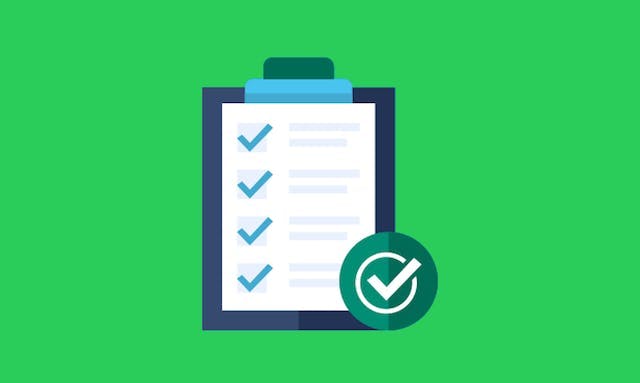The process of learning to drive can be both exciting and stressful. For some, it can trigger a real sense of anxiety which is hard to shake and can hamper your progress. We get it—there are lots of new things to learn, it costs quite a bit of money, and you may even feel the burden of other peoples' expectations weighing you down.
When you see it laid out like that, it's no wonder people get so nervous about driving! If you feel this way, it's highly likely that you are overthinking everything and putting too much pressure on yourself. Now, this is very easy for us to point out, but not so easy to overcome. The good news is that there are many things within your control that you can adjust to make the learning process smoother and more enjoyable.
How your driving instructor can calm your anxiety
First things first, a major factor affecting your learning experience is the instructor you choose. Now remember, they're people just like us (really!), which means they come with different personality types and teaching techniques. It is inevitable that some will be a good fit for you, but others won't.
Hopefully you'll be lucky enough to find a good match first time, but if not, feel free to test drive a few. This is someone you'll be spending a lot of one-on-one time with, so you need to be able to feel comfortable around them. All relationships take time to build, so try to be open and friendly when you meet potential instructors.
Think about what you're looking for in this person. If you need a lot of encouragement, pick someone who seems like they'd be very supportive and understanding. Find it helpful to be distracted from your nerves? Pick someone who's a bit of a chatterbox.
Alternatively, if you find it hard to focus, pick an instructor who's a bit on the quieter side. Some people also find it easier to learn with a female driving instructor—it's all about personal preference! That being said, you don't want to become Goldilocks here. You need to be realistic about how many options you have based on your area and car preferences.
An instructor may also be reluctant to take you on if you're extremely picky and don't respect their time. The best thing to do it be very honest about your anxiety from the beginning, and stick with an instructor who responds well to your predicament and is happy to answer questions and provide reassurance.
Be proactive

A great way to reduce anxiety about anything is to take a leaf out of the Scouts' handbook and always be prepared. When it comes to driving, there are lots of books and online resources that you can use to research what lies ahead. You may find, for example, that driving an automatic is the best option for you if you're already nervous. You won't need to worry about gear and clutch control, which can significantly reduce the time it takes you to learn.
The unknown is a scary prospect for many—so get studying and you'll develop a good idea of what to expect. Make sure you know all about driving test faults and how they affect the outcome of your test. It might be useful to ask your instructor about the route you are going to drive at the beginning of each lesson.
If possible, try to fit in some practice driving time with family or friends. Practice makes perfect, as they say, and any extra time in the car will be useful.
Do keep in mind that driving with people you know may actually be more stressful than regular lessons. Depending on their temperament or the nature of your relationship, these scenarios have been known to cause arguments. Pick your driving buddies wisely!
Remember, the law states that those accompanying learner drivers need to be at least 21 years old and have held a driving licence for a minimum of 3 years. L plates are also a must—so make sure you check the L plates rules! There are a number of natural remedies on the market that claim to be able to reduce anxiety. Perhaps try taking something like Rescue Remedy before each lesson. Even if its powers are hard to prove, the placebo effect can be just as helpful. You could also drink some calming tea or employ breathing exercises to relax. Don't get too calm, though: you need to be alert on the road!
Mindset

Although it may seem very complex, attempt to determine what is at the root of your anxiety about driving. It could be that you already have so much on your plate that taking lessons is just an extra stress factor in a situation where you feel you cannot cope. If this is the case, try to view driving as your time to escape from your regular life and focus on something new. Even though you are learning, lessons can also serve as a kind of time out from the world.
The open road and sense of power can be incredibly freeing. On the other hand, it may be that driving is the specific source of stress and everything about it makes you anxious. This is of course a tricky place to start, but it is not impossible to switch up your thinking. Maybe view this as an opportunity to grow and overcome your fears. You're in a safe environment because your instructor is there to help and take control of the car, if necessary.
Work on the areas that scare you the most—you'll soon see that you're more capable than you think. Take on each problem one at a time if that feels more manageable. If you are really hating learning to drive, here's how to change your mindset. It might be helpful to create some sensory anchors. This is a cognitive technique that helps you associate positive feelings with certain situations. For example, if you wear you favourite perfume every time you have a lesson, you may start to associate being in the car with happy occasions in your life. More information on this method can be found here.
Just know...
You are not alone: anxiety in learners is very common (it's almost expected). Many pupils before you have overcome their nerves and managed to pass. Even if it takes multiple attempts, you can pass your driving test despite suffering from anxiety. People who don't feel that nervous often take a few tests before they qualify.
You have plenty of time to improve and there's no pressure for you to pass first time—statistics even show that this is not that common. The driving process itself should get better with time. Once you're a qualified driver (which WILL happen!) you will feel a lot more capable because you've had a massive vote of confidence from the DVLA.
Driving also becomes second nature, you no longer have to wonder how to position your hands or which gear you should be in—you just do it. Yes, passing can be a big hurdle, but once you're over it you will feel so much better. Plus, there's always someone out there who has messed up more than you ever will! Have a read of our driving test horror stories—it'll really put things into perspective!
Beating driving test anxiety

If you make it to test day, congratulations! You've already come so far and your instructor believes in your driving ability. The day before your test, make sure you've read our advice on how to avoid last-minute nerves. After that, there's just a couple of other things to consider that could make you feel better about the day ahead. It might be a good idea to have your instructor accompany you on the test. They aren't allowed to help you, of course, but the presence of a familiar person might calm your nerves.
Then again, if this adds more pressure, don't feel bad asking them to sit it out. Everyone's different; decide which scenario is preferable to you. Lastly, don't tell a lot of people the date of your test. That way, you don't have the extra worry of everyone thinking about you and asking about it afterwards. If you fail, you then have the choice to keep it to yourself or tell people in your own time. If you pass, it's a lovely surprise for everyone! This is a personal journey of development for you, so you decide who's involved and how it's structured.
Learning to drive does not need to be a traumatic experience. If it feels that way initially, there's lots of help out there designed for people just like you. It might be daunting at first, but you just have to push yourself to take the initial steps and the rest will follow. Avoid any unnecessary added stress by keeping all important documents safe.
If disaster does strike, read our article on what to do about a lost provisional licence. We're also lucky to have reasonably good driving conditions here in the UK. Pop your seatbelt on and (try to) enjoy the ride! If you need any further guidance about anxiety, check out Mind—they have lots of helpful information and advice.
Subscribe for driving advice, offers & more
We'd love to let you know about our courses, news and offers via email. You may unsubscribe at any time.
Star Genie Limited trading as PassMeFast. Company number 10093359
Copyright © 2024 owned by Star Genie Limited
PassMeFast, Blue Tower, MediaCityUK, Salford, M50 2ST
